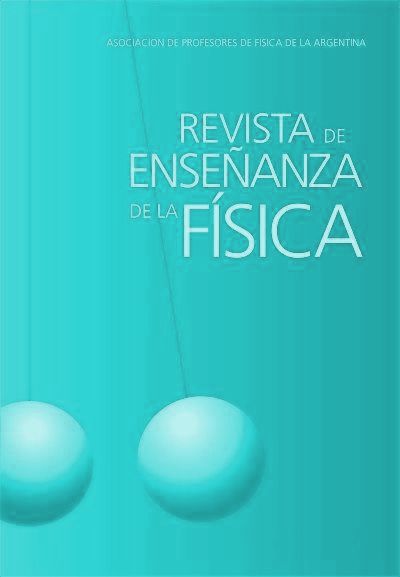Curricular adaptations in Brazil: perceptions of a Physics teacher
Keywords:
Professor of Physics, Curriculum Reform and Integral Teaching ProgramAbstract
Within the scope of curricular changes in Brazil, approved in 2017 through the Reform of the Common Curriculum Base (BNCC) and the implementation of the new high school (NHS), both students and teachers experience the impact of these changes. The modifications imposed aren’t only restricted to the structure of the curriculum but also affect the dynamics of classes and the interactions between educators. This article is a fragment of a research project that aims to investigate the collaborative relationships between teachers of natural sciences. However, the specific focus of this research is to analyze the discourse of a physics teacher who teaches in a school with a comprehensive education program in the city of São Paulo. When we direct our attention to the impressions of the physics teacher about the changes in the curriculum, it becomes evident mainly how he recognizes himself as a member of the field of natural sciences, no longer just a physics teacher isolated within the school. Therefore, the analysis reveals the positive and negative effects the full-time education program brought him during this adaptation stage.
References
Brasil, Congresso Nacional (1988). Constituição da República Federativa do Brasil. Brasília. Disponível em http://www.planalto.gov.br/ccivil_03/Constituicao/ConstituicaoCompilado.htm
Brasil, Congresso Nacional (1996). Lei de Diretrizes e Bases da Educação Nacional 9394, 20 de dezembro de 1996. Brasília. Disponível em https://www.planalto.gov.br/ccivil_03/leis/l9394.htm
Brasil, Congresso Nacional (2017). Lei complementar No 13.415, de 16 de fevereiro de 2017. Brasília. Disponível em https://www.planalto.gov.br/ccivil_03/_ato2015-2018/2017/lei/l13415.htm
Brasil, Ministério da Educação, (1997). Parâmetros Curriculares Nacionais para o Ensino Fundamental. Brasília. Disponível em http://portal.mec.gov.br/seb/arquivos/pdf/livro01.pdf
Brasil. Ministério da Educação (2018). Base Nacional Comum Curricular. Brasília. Disponível em
http://basenacionalcomum.mec.gov.br/images/BNCC_EI_EF_110518_versaofinal_site.pdf
Dubar, C. (1997). A socialização: construção das identidades sociais e profissionais (2a ed.). São Paulo, Brasil: WMF Martins Fontes. DOI: 10.1590/s1414-98932004000200003.
Frutuoso, C., Maciel, A. C. e Teixeira, E. A. (Julho 2016). Princípios e concepções de educação integral no Brasil. Documento apresentado no X Seminário Nacional do HISTEDBR. Campinas, Brasil.
Galindo, W. C. M. (2004). A construção da identidade profissional docente. Psicologia: Ciência e Profissão, 24(2), 14–23.
Jacques, D. et al. (1996). Learning: the treasure within; report to UNESCO of the International Commission on Education for the Twenty-first Century (highlights). Paris. Disponível em https://unesdoc.unesco.org/ark:/48223/pf0000109590
Sâo Paulo (2012). Lei Complementar no 1.191, de 28 de dezembro de 2012, São Paulo. Disponível em http://www.legislacao.sp.gov.br/legislacao/index.htm
São Paulo, s. f. Diretrizes do Programa de Ensino Integral. Disponível em https://www.educacao.sp.gov.br/a2sitebox/arquivos/documentos/342.pdf>
Downloads
Published
Issue
Section
License

This work is licensed under a Creative Commons Attribution-NonCommercial-NoDerivatives 4.0 International License.
Aquellos autores/as que tengan publicaciones con esta revista, aceptan los términos siguientes:Los autores/as conservarán sus derechos de copiar y redistribuir el material, bajo los términos estipulados en la Licencia de reconocimiento, no comercial, sin obras derivadas de Creative Commons que permite a terceros compartir la obra bajo las siguientes condiciones:
- Reconocimiento — Debe reconocer adecuadamente la autoría, proporcionar un enlace a la licencia e indicar si se han realizado cambios. Puede hacerlo de cualquier manera razonable, pero no de una manera que sugiera que tiene el apoyo del licenciador o lo recibe por el uso que hace.
- NoComercial — No puede utilizar el material para una finalidad comercial.
- SinObraDerivada — Si remezcla, transforma o crea a partir del material, no puede difundir el material modificado.
- Los autores/as podrán adoptar otros acuerdos de licencia no exclusiva de distribución de la versión de la obra publicada (p. ej.: depositarla en un archivo telemático institucional o publicarla en un volumen monográfico) siempre que se indique la publicación inicial en esta revista.
- Se permite y recomienda a los autores/as difundir su obra a través de Internet (p. ej.: en archivos telemáticos institucionales o en su página web) antes y durante el proceso de envío, lo cual puede producir intercambios interesantes y aumentar las citas de la obra publicada. (Véase El efecto del acceso abierto).










